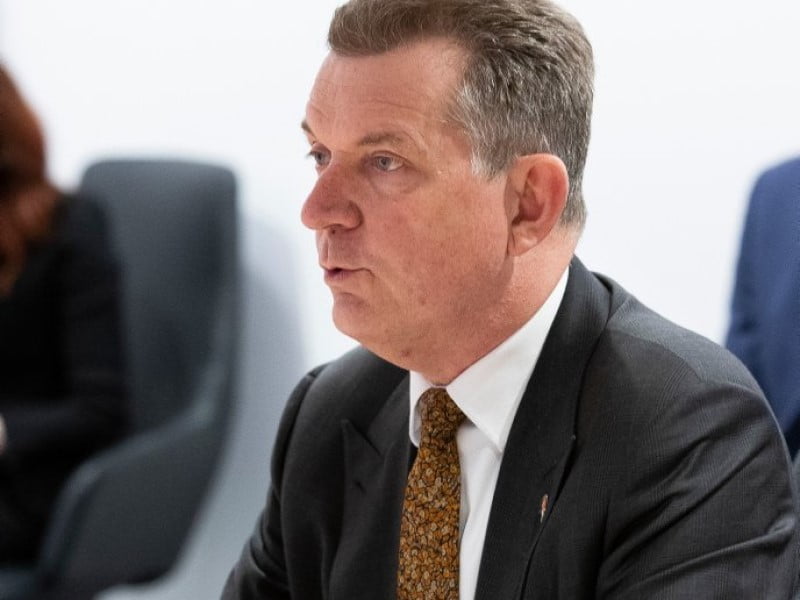Defence deputy secretary Peter Tesch is Australia’s principal for the AUKUS Trilateral Joint Steering Group on advanced capabilities.
Mr Tesch was appointed deputy secretary of the Department of Defence on May 1, 2019 as head of the Strategy, Policy, and Industry Group. He entered the role after three years as Australia’s ambassador to Russia. During this time, he was also the ambassador to Armenia, Belarus, Kazakhstan, Kyrgyzstan, Moldova, Tajikistan, Turkmenistan and Uzbekistan.
For more than 30 years, Mr Tesch has represented Australia in multiple international postings. This includes as the Ambassador to Germany between 2009-2013, the deputy permanent representative to the United Nations between 2002-2005, and as the Ambassador to Kazakhstan between 1997-1999. He has also held several executive positions in the Department of Foreign Affairs and Trade.

Among his responsibilities in his role overseeing the Strategy, Policy, and Industry Group (SPIG), Mr Tesch works industry to deliver Defence capability and national economic growth. There are four divisions within SPIG, contestability, international policy, strategic policy, and defence industry policy. The latter division oversees Australian export controls over military and dual-use goods and technology.
Both Mr Tesch and chief of the Nuclear-Powered Submarine Taskforce vice-admiral Jonathan Mead, who is Australia’s principal to the Joint Steering Group (JSG) for Australia’s Nuclear-Powered Submarine Program, were sanctioned by Russia in June.
Mr Tesch’s United States counterpart is Under Secretary of Defense, Acquisition and Sustainment Dr Bill LaPlante. His United Kingdom counterpart deputy chief of the Defence Staff (Financial and Military Capability) Lieutenant General Rob Magowan.
The United States coordinator for AUKUS initiatives Dr James Miller is a principal on both JSGs. Australian and the United Kingdom governments have not created an equivalent role.
The three AUKUS nations have highlighted undersea capabilities, quantum, AI and autonomy, advanced cyber, hypersonics and counter-hypersonics, and electronic warfare as particular areas of focus. Trials and experimentation through the AUKUS Undersea Robotics Autonomous Systems project will begin next year with quantum technology trials expected to occur over the next three years.
The JSGs have met several times since their inaugural meetings in December 2021, including in-person in Canberra, London, and Washington DC.
They recently met at the end of July before the United Nations conference on nuclear non-proliferation began. Following that meeting, a joint statement noted that the participants would seek to “bolster combined military capabilities” which included accelerating near-term capabilities in hypersonics, counter-hypersonics, and cyber.
Earlier this year, a report from the University of Sydney’s United States Studies Centre stated that the technological capabilities and innovation ecosystems from AUKUS would be “more consequential” and arrive sooner than the nuclear-powered submarines.
Defence Minister Richard Marles expressed a similar sentiment ahead of his trip to the United States in July. He said that non-submarine technologies would be “just as if not more important” in terms of what AUKUS ultimately delivers.
Industry have reacted positively to the advanced capability arrangements through AUKUS, with some describing it as a “seminal moment” with the potential to bring a “huge multiplier effect” to local industry.
The federal government announced launched a Defence Strategic Review on August 4 which would examine capability investment priorities. It is due to be completed in March 2023.
Do you know more? Contact James Riley via Email.

